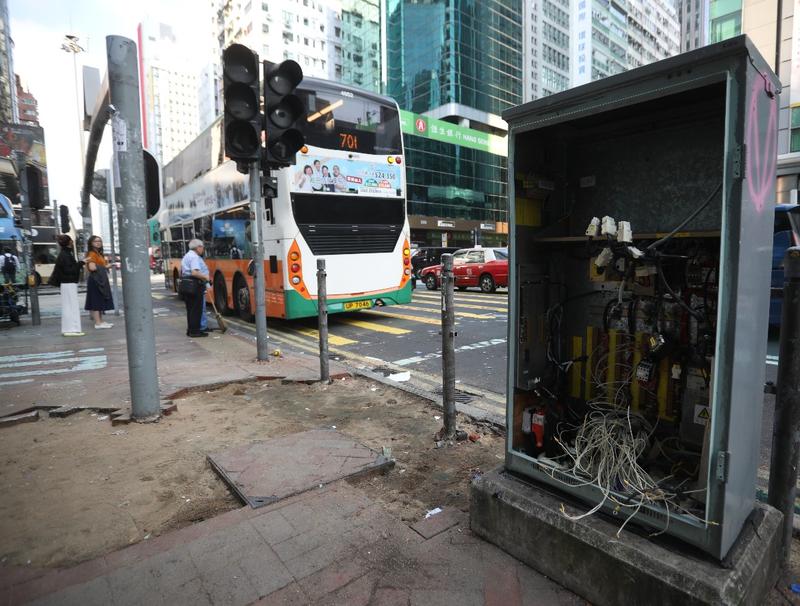'Butterfly effect' needs to come to an end
By Daniel de Blocq van Scheltinga | China Daily Global | Updated: 2019-10-28 09:25

Clearly, the black shirt protest is not as spontaneous and leaderless as some would like to suggest. It was meticulously prepared for months, and the organizers were waiting for the right opportunity to strike.
The preparation most likely began soon after the "Occupy Central" movement, a civil disobedience campaign, in 2014. Training in social media manipulation, computer hacking and street fighting must have all been part of the preparation. Perhaps, as some have suggested, part of the training was provided by the New York-based Oslo Freedom Forum, a nonprofit human rights organization, where Hong Kong activists Joshua Wong Chi-fung and Denise Ho Wan-see have been regular guests.
The forum is candid about its activities. "The Oslo Freedom Forum provides a space for advocates to learn methods for amplifying dissent, using cutting-edge technology to challenge tyrants and drive reform," it says on its website.
In another development, a young man from Hong Kong, Chan Tongkai, along with his 20-year-old pregnant girlfriend, went to Taipei, where he is accused of killing her. This was a terrible tragedy for the girl's parents, who asked Hong Kong Chief Executive Carrie Lam Cheng Yuet-ngor to ensure justice for her.
This was the start of the so-called butterfly effect, a phenomenon whereby a small change at one place can have large effects elsewhere. The parents' letter would have major unintended repercussions in HK. The chief executive, in response to the parents' plea, proposed the now-withdrawn extradition bill.
This, as we have seen, was the excuse the protest movement was looking for. The order was given, funds were released and the propaganda machine went into overdrive. A highly professional, and rather dark and frightening, film depicting life in Hong Kong after implementation of the bill was made. It swept across social media, stirring political resistance and social unrest in society. Rational legal arguments explaining the background of the bill, which was still a work in progress, were all swept aside. Large demonstrations were organized, and the scaremongering encouraged many citizens to join in.
Weeks of social turmoil followed, which continues to pose a serious threat to society even today. That the bill was just a catalyst the movement had been waiting for was indicated by the fact that the unrest and violence only increased in intensity after the chief executive effectively killed the proposed bill, declaring it "dead".
The movement took an anti-establishment and anti-China direction, encouraged by visits to Hong Kong by United States senators.
On Wednesday, Chan Tong-kai was released from prison. However, to the surprise of many he expressed his willingness to go to Taiwan and face trial there for his crime. He also made a public appeal for forgiveness in Hong Kong.
This would have been good news for parents of the murdered girl, and perhaps for Hong Kong as well, as it would have been the beginning of a new chapter in societal reconciliation.
Unfortunately, uncertainty has surrounded the discussions between Hong Kong and Taipei, with the wind from Taipei constantly changing directions.
Justice must be served, and Chan must go to Taipei. Extradition is obviously impossible now, so his voluntary departure for Taipei should be welcomed. Since he is a suspect in a killing that occurred in Taiwan, the local prosecutors have the jurisdiction to prosecute, and any trial should take place there.
The case, which unintentionally sparked the worst crisis Hong Kong has faced in decades, must not in itself become a political pawn. The relevant judicial departments should resolve any legal issues with utmost urgency, and let Chan surrender himself to the authorities in Taipei.
As there are no existing guidelines or precedent, there is a need to come up with one-time, case-specific solutions to finally put an end to this saga.
The butterfly needs to move on.
The author, who lives in Hong Kong, is an adviser on China-related matters to both the private and public sectors. The views do not necessarily reflect those of China Daily.
























